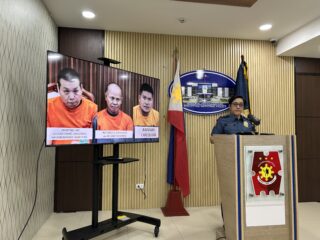Germany is willing to assist the Philippines in the shift of the system of government from unitary to federal that is being pushed by lawmakers and civil society groups.
“We are happy to share our experience with a federal system and contribute to discussions in other countries,” Michael Hasper, charge d’ affairs of the German Embassy in Manila said in a speech before the Global Autonomy, Governance and Federalism (GAGF) Forum 2016 held in Makati recently.
Among the organizers of the forum was Cotabato City-based think tank Institute for Autonomy and Good Governance, and the Konrad Adenauer Foundation of Germany’s ruling party, the Christian Democratic Union.
Hasper said there was “general interest” from both the foundation and the embassy about discussions on the shift to federalism, one of President Duterte’s advocacies.
He pointed out that there are many different types of federalism and that “a federal constitution can only be successful if it fits the specific needs of a country and its people.”
In his speech, the diplomat spoke about the need to speed up problem-solving in a federal setup and to correctly define the territory and rights of the future states in a federal Philippines.
“In Germany, our present federal constitution is also popular because it was introduced as a tool to end dictatorship. When the Nazis established their authoritarian regime, they broke with our federal traditions and introduced a centralized system. And when we reintroduced democracy in Germany after the Nazi regime, the reintroduction of federalism and a federal constitution became key,” he said.
He said that in Germany, federalism does not only provide more autonomy to the individual states to raise certain taxes and exercise certain political powers but also serves as “an instrument to foster political participation and democracy.”
Hasper, however said that since there is no ideal political system, federalism also comes at a price, adding that in the a federal system, political processes can take longer.



